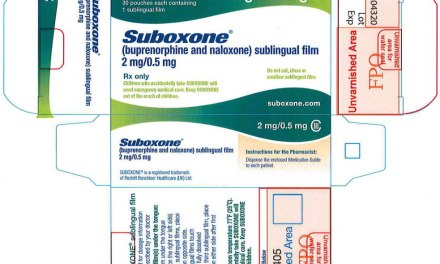Sen. Rob Portman of Ohio wrote in the Washington Post about the need to involve the private sector in finding solutions for the opioid epidemic.
The private sector has a powerful incentive to treat opioid addiction
In an era of declining unemployment, it seems it’s increasingly difficult for business and industry to expand their operations, even when the financing is readily available. They struggle to find workers to fill new jobs. There’s a real shortage of “human capital.”
The Senator makes a good point about those much-publicized low unemployment figures — they don’t reflect the reality that an inordinate number of able-bodied workers have already dropped out of the workforce. They don’t get counted. If they did, the Senator notes, the “real” unemployment rate would be closer to 9% than 4%. Big difference, huh? Makes for a completely different headline in today’s paper.
Coming from a state that’s been hard-hit by the epidemic, Rob Portman speaks from experience when he says that many of the “missing” from the workforce suffer from opioid disorders. He cites a finding that surprised me: Around 50% between 25 and 54 were using pain meds daily. And even in this era of widespread warnings about overprescribing, two-thirds of those pain meds were prescribed, presumably by physicians.
In other words, this is not a street drug problem. Not yet, at least.
Not all those taking the medications are addicted, of course. But enough will be to make a strong argument that employers will be among the greatest beneficiaries of an effective campaign to prevent and treat opioid disorders. In DSM5 parlance, those come in three levels of severity (mild, moderate, and severe), so we already know that more than one type of intervention will be required. Some will do well as outpatients, others will require more intensive treatment. A percent will respond quickly and others will need much longer term services.
Because we know this in advance, we can plan accordingly.
Portman argues that since business and industry will directly benefit, they should take an active or even a leadership role in this effort. Besides, as I like to point out to senior execs from big firms, sometimes cupping my hands to form a makeshift megaphone: “You have the moneyyyyyy…..”
More now than ever before, right? A portion of that tax cut could be put to good use.
Private sector participation won’t be the whole answer, any more than we can expect business to solve the problem of homelessness. It’s a valued contributor, not a solution. The main part will always fall to government.
Some things communities cannot accomplish on their own, without a high-functioning, responsive government, staffed by competent people, adequately funded, and executing a strategic plan.
What else can I say? Let’s get to it.













